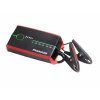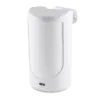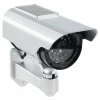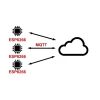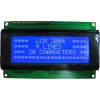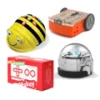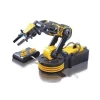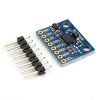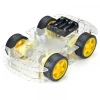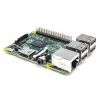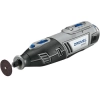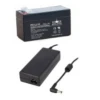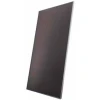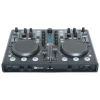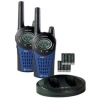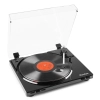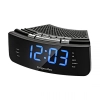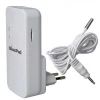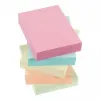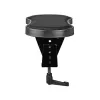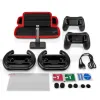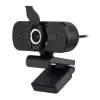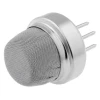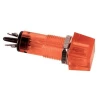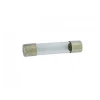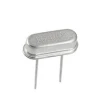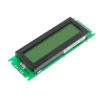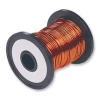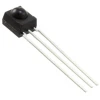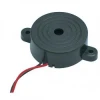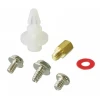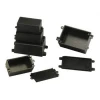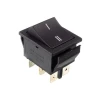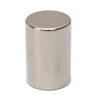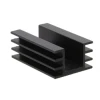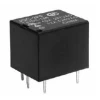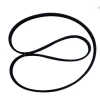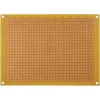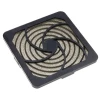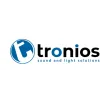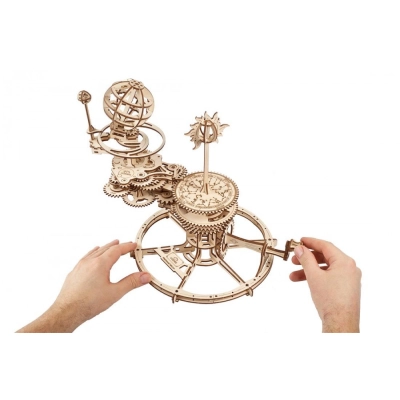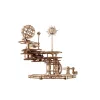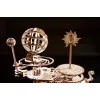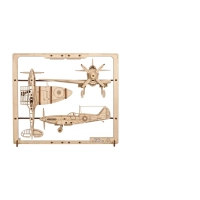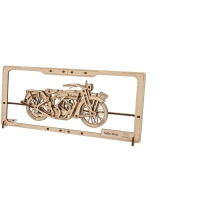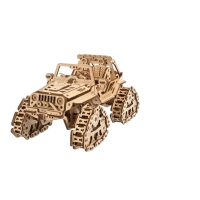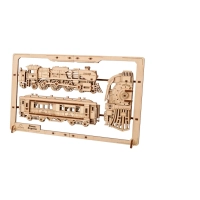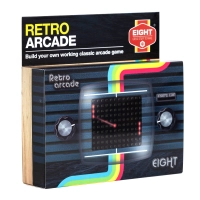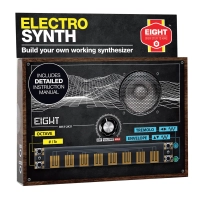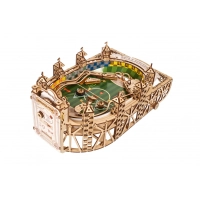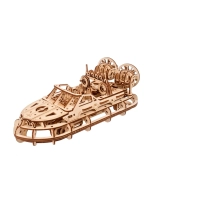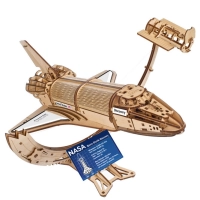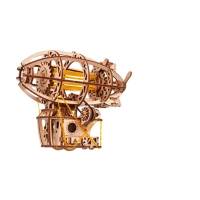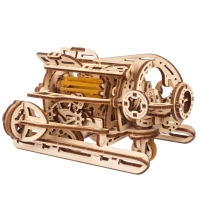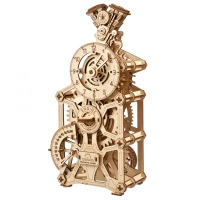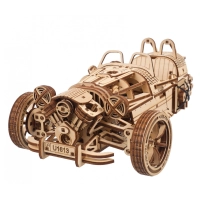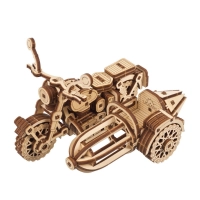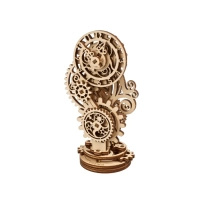Konstruktor mehaaniline "Planetaarium" päike-maa-kuu 249-osa
- 53.00 €
-
- Püsikliendile 50.35 € -5%
- Logi sisse ja saad vähemalt 5% soodustust
Tallinn, Peterburi tee 90F
Tallinn, Peterburi tee 90F
Tallinn, Pärnu mnt. 238
Tartu, Lääneringtee 39
Rakvere, Haljala tee 4
Pärnu, Papiniidu 8
Ugears engineers have been nurturing the idea of creating a planetary-scale 3D mechanical constructor for a long time. Every time we announced a new model, intrigued Ugears fans asked if it would be something cosmic. Out of this shared desire was born our new wooden constructor, whose mission is to spread the knowledge of space and time by helping people imagine the motion of the planet we live on and its satellite, the moon.
Ugears is proud to present the Mechanical Tellurium, an accurate wooden model that reflects the part of the universe we live in. The Tellurium (also known as tellurion, tellurium, sometimes called loxocosm) is an ingenious mechanism that depicts the cosmic dance between the Sun, Earth, and Moon. The changes of day and night, the phases of the moon and the changes of the seasons can be seen and understood according to the movements of this 3D constructor. The Tellurium (from the Latin Tellus, meaning "earth") presents a planetary mechanism illustrating the mutual position and motion of the planets and satellites in the solar system in a heliocentric model.
What is our place in the universe? Where are we going? We can't help you with the metaphysical aspect of these questions, but this wooden puzzle will help you better understand what planet Earth is and its relationship to its closest celestial neighbors. We all notice the regular changes of day and night, months, seasons, and the passage of years in general. But how many of us really understand these phenomena or can explain what is behind the clocks and calendars that govern our lives? Any child can tell you how old they are, but ask a child how many times we revolve around the sun and you might get a puzzled look or a ridiculous number of answers: a hundred and twenty-seven, ten thousand, once, none?
Create a charming wooden model of Tellurium yourself, enjoy it with family and friends, and you'll all have a better understanding of the travels of cosmic bodies, the seasons, and the concept of time itself. Turn the knob to set in motion the precisely calibrated gear system. One turn of the knob = one revolution of the Earth around its axis = one day. Point to a point on the Earth's surface, observe the position of the Earth rotating in relation to the Sun, and visualize sunrise and sunset, the transition of day into night. Tellurium shows that the phases of the Moon depend on the position of the Moon in relation to the Sun and the Earth. As the Moon rotates, it rises and falls slightly, thereby changing its trajectory. Earth's orbit around the Sun, along with the correct 23.5 degrees of Earth's tilt, shows why we experience the changing seasons (outside of equatorial regions). The Tellurium shows the course of the seasons and also gives a good graphic representation of the zodiac, showing the sign and constellation under which you were born.
The Ugears Mechanical Tellurium can be manually adjusted to provide an accurate representation of the relative positions of the Sun, Earth, and Moon on any given day. To adjust the mechanism, set the pointer to midwinter or summer on the seasons dial. The Earth, on its tilted axis, can be rotated (with the gear below the phases of the Moon) so that the hemisphere is either at its farthest point from the Sun during the overcast midwinter, or at its closest point to the Sun in summer. Turn the number of days lever forward or backward to set the current day. After familiarizing yourself with the lunar calendar, use the top gear dial to adjust the position of the Moon to the correct phase. Your Tellurium is now set. Each day, wind the model one revolution to reflect the movement of the Earth around the Sun and the cycle of the Moon as it revolves around the Earth.
As you study the movement of the Tellurium 3D constructor, you learn that the full moon occurs when the Moon is behind the Earth, far from the Sun. This is because the Sun illuminates the entire visible surface of the Moon (the "bright side" of the Moon). Conversely, when the Moon is between the Earth and the Sun, the Sun's rays illuminate the part of the Moon that is turned away from us (the "dark side" of the Moon). We call this phase the "young moon"-the period when the Moon is not visible in the night sky. In between these phases, the Moon increases and decreases, changing its visible shape depending on what percentage of the illuminated portion we can observe from Earth.
Representing the orbital periods of the Earth and Moon, our design engineers equipped the mechanical Tellurium with a complex system of gears (first developed by Dutch mathematician Christian Huygens in the 17th century) to demonstrate the most accurate readings in a wooden mechanism. The planetary mechanism has an orbital period of 365,256 days, while the Moon-Earth system has an orbital period of 27,323, giving accuracy within one thousandth of a day.
Model size: 40.5*26*30.5 cm
Package size: 37.8*17*3.4 cm
Number of parts: 249
Estimated build time: 5 tundid
Tase: Medium
Model size: 40.5*26*30.5 cm
Packing size: 37.8*17*3.4 cm
Number of parts: 249
Estimated assembly time : 5 hours
Level of difficulty : Medium
Lae alla




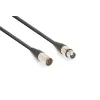
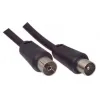
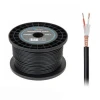
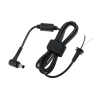
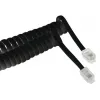
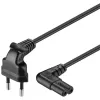











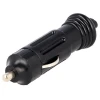
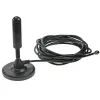


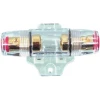

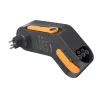
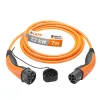
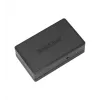
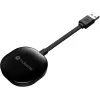

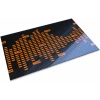
-100x100.webp)

